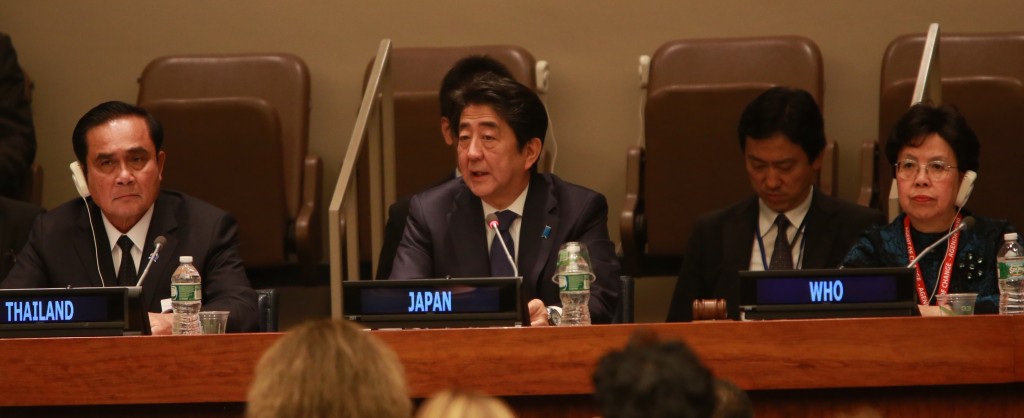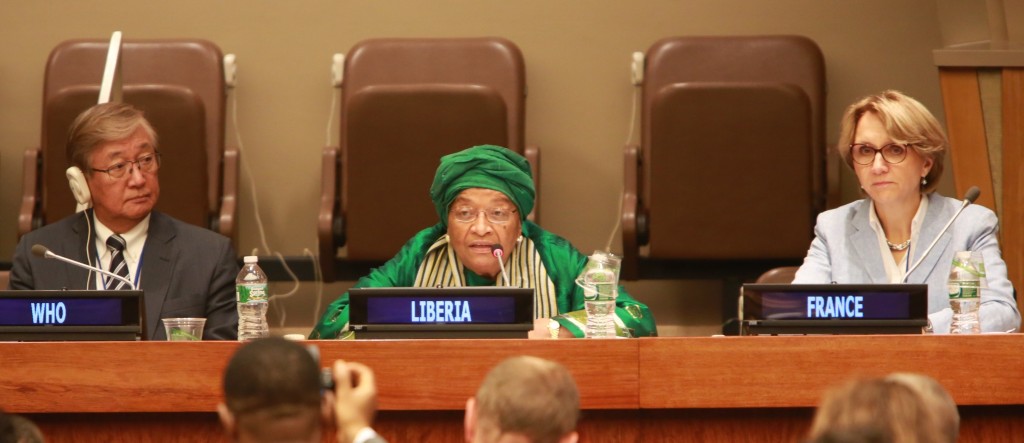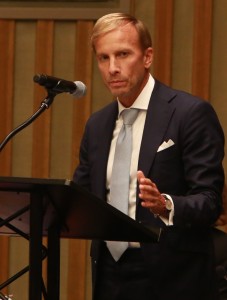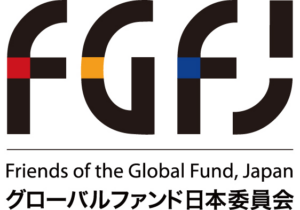
On Monday, September 28, at the United Nations General Assembly, the government of Japan and the Global Fund co-organized a side event on “The Path Towards Universal Health Coverage: the promotion of equitable global health and human security in the post-2015 development era” along with the governments of France, Liberia, Senegal, Thailand, the WHO, and the World Bank. The panels included several heads of state and of multilateral institutions, who discussed the importance of cross-cutting concepts such as universal health coverage (UHC) in achieving the 2030 Agenda for Sustainable Development that had just been adopted three days prior.
Prime Minster Abe, in his keynote speech, emphasized how UHC is central to achieving Japan’s two overarching global health priorities as outlined in its new global health policy—strengthening global health governance for improved pandemic response, and the building of seamless and resilient health systems—and how international partnerships and financing mechanisms such as the Global Fund are crucial to this effort. Recalling that discussions on addressing major communicable diseases at the 2000 G8 Summit in Okinawa paved the way for the establishment of the Global Fund two years later, and how the 2008 Toyako G8 Summit Agenda successfully galvanized global support for health systems strengthening, the Prime Minister spoke on his intent to mobilize Japan’s upcoming chairmanship of the 2016 Ise Shima G7 Summit to set important global health priorities in the post-2015 era of the sustainable development goals and pull together an alliance to attain UHC through enhanced health systems worldwide.

WHO Director-General Margaret Chan pointed out how Japan’s economic success in the past century was due to its successful implementation of UHC as part of a larger postwar effort to foster social cohesion and equitable development, and President Ellen Johnson-Sirleaf of Liberia outlined a number of initiatives underway in cooperation with bilateral and multilateral partne rs such as Japan and the Global Fund to strengthen the health system and pandemic preparedness in Liberia, a country where access to health services is back up to 70% but where the infrastructure is still critically weak as exposed by the devastation wrought by the Ebola epidemic. Prime Minister Chan-o-cha of Thailand spoke on his country’s experience having achieved UHC in 2002, then evolving to provide basic services free of charge and extending health coverage to immigrants.
rs such as Japan and the Global Fund to strengthen the health system and pandemic preparedness in Liberia, a country where access to health services is back up to 70% but where the infrastructure is still critically weak as exposed by the devastation wrought by the Ebola epidemic. Prime Minister Chan-o-cha of Thailand spoke on his country’s experience having achieved UHC in 2002, then evolving to provide basic services free of charge and extending health coverage to immigrants.
Global Fund Executive Director Mark Dybul concluded the meeting by adding that “our collective efforts are critical to building stronger, more resilient systems for health that can bring greater opportunity and social justice to all.”
